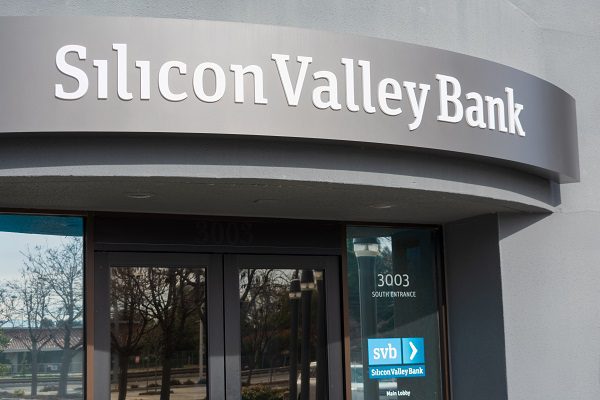
HSBC’s purchase of Silicon Valley Bank UK (SVB UK) will protect the immediate future of fintechs in the UK, but it does raise the question of what repercussions or similar situations could occur because of the volatile economic situation.
Several payment fintechs and challenger banks have been affected by the collapse of Silicon Valley Bank (SVB), which marks the largest failure of a bank since the 2008 financial crisis. Stock markets took a major hit in the UK and US because of the developments.
SVB was closed by the California Department of Financial Protection and Innovation on 10 March, citing “inadequate liquidity and insolvency” as the reason. The Federal Deposit Insurance Corporation (FDIC) was named as the receiver.
In a statement issued on 13 March, the FDIC said all insured and non-insured deposits, as well as assets, of SVB have been transferred to a “newly created, full-service FDIC-operated ‘bridge bank’ in an action designed to protect all depositors of Silicon Valley Bank”.
A bridge bank is a chartered national bank that operates under a board appointed by the FDIC while the FDIC stabilises the institution and implement an orderly resolution. Tim Mayopoulos is now the CEO of Silicon Valley Bank under this model of a bridge bank.
The collapse also affected SVB UK, which has been a dominant player in the UK fintech sector, serving approximately 3,300 SMEs.
Following a weekend of crisis talks, HSBC bought SVB UK for £1 on 13 March. This nail-biting overnight rescue mission involved Prime Minister Rishi Sunak, Chancellor Jeremy Hunt, and City Minister Andrew Griffith, as well as Bank of England Governor Andrew Bailey and Sam Woods of the Prudential Regulation Authority.
In what has been described as an impressive and fast deal for an incumbent bank that has saved the UK’s fintechs, the conversation has now shifted to what the future may look like.
Debate has erupted across social media and some finance circles about whether HSBC is the right bank to take over SVB UK and whether it really understands the startup ecosystem, their funding and banking needs or the tech industry. SVB was a popular choice for start-ups because the traditional banks would not take the riskier financial investments required in this sector.
As such, there will be direct and indirect implications for the UK payments and fintech sector. With many fintechs putting a hiring freeze in place this year and a general slow-down of investment in fintechs because of the general economic climate, innovation could slow.
“It is imperative that we stand together in solidarity during this crisis and ensure everyone is aware of the implications for the payments industry (as well as depositors) and understand the important role our sector plays in the wider economy – both today and in the future,” says Tony Craddock, director general of The Payments Association.
Are you a payments firm that has been impacted – directly or indirectly? You can speak to The Payments Association so that we can feed this information to the appropriate stakeholders. Contact Tony Craddock now.
The Payments Association
St Clement’s House
27 Clements Lane
London EC4N 7AE
© Copyright 2024 The Payments Association. All Rights Reserved. The Payments Association is the trading name of Emerging Payments Ventures Limited.
Emerging Ventures Limited t/a The Payments Association; Registered in England and Wales, Company Number 06672728; VAT no. 938829859; Registered office address St. Clement’s House, 27 Clements Lane, London, England, EC4N 7AE.







Log in to access complimentary passes or discounts and access exclusive content as part of your membership. An auto-login link will be sent directly to your email.
We use an auto-login link to ensure optimum security for your members hub. Simply enter your professional work e-mail address into the input area and you’ll receive a link to directly access your account.
Instead of using passwords, we e-mail you a link to log in to the site. This allows us to automatically verify you and apply member benefits based on your e-mail domain name.
Please click the button below which relates to the issue you’re having.
Sometimes our e-mails end up in spam. Make sure to check your spam folder for e-mails from The Payments Association
Most modern e-mail clients now separate e-mails into different tabs. For example, Outlook has an “Other” tab, and Gmail has tabs for different types of e-mails, such as promotional.
For security reasons the link will expire after 60 minutes. Try submitting the login form again and wait a few seconds for the e-mail to arrive.
The link will only work one time – once it’s been clicked, the link won’t log you in again. Instead, you’ll need to go back to the login screen and generate a new link.
Make sure you’re clicking the link on the most recent e-mail that’s been sent to you. We recommend deleting the e-mail once you’ve clicked the link.
Some security systems will automatically click on links in e-mails to check for phishing, malware, viruses and other malicious threats. If these have been clicked, it won’t work when you try to click on the link.
For security reasons, e-mail address changes can only be complete by your Member Engagement Manager. Please contact the team directly for further help.